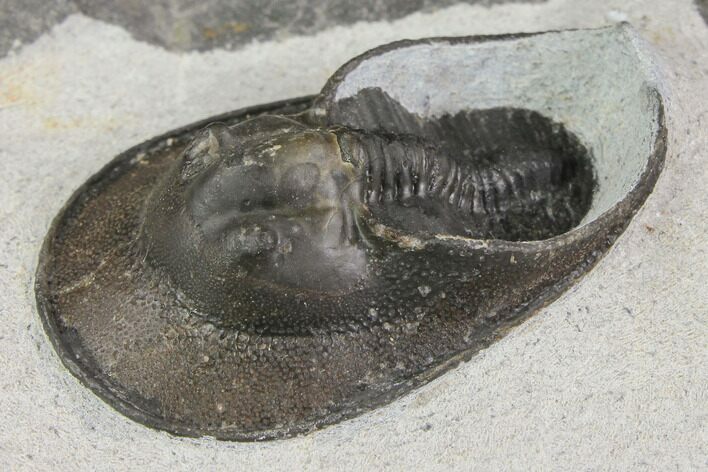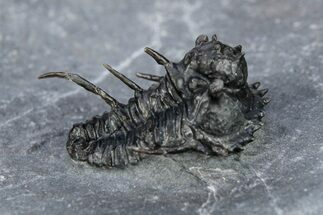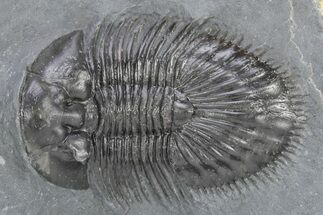This Specimen has been sold.
Nice, 1.4" Harpes (Scotoharpes) Trilobite - Boudib, Morocco
Here is a nice example of Harpes (Scotoharpes) from Boudib, Morocco on the NE side of Jebel Issoumour. It has a very dramatic "head shield" which is often interpreted as a mechanism to help it stay on top of a soft ocean floor. This preglabellar ring (head shield) is covered in many sensory pits which may have held hairlike features when the trilobite was alive.
The trilobite is 1.4" long. There is only about 1% restoration along the repaired crack running through the trilobite.
The trilobite is 1.4" long. There is only about 1% restoration along the repaired crack running through the trilobite.
About Trilobites
Trilobites are an extinct class of marine arthropods that thrived for nearly 270 million years, from the early Cambrian to the end of the Permian period (around 521 to 252 million years ago). They are one of the most successful and diverse groups in the history of life, with over 25,000 described species spanning a wide range of sizes, shapes, and ecological niches. Known for their distinctive, segmented exoskeletons, trilobites provide invaluable insights into the evolutionary history of arthropods and the dynamics of ancient marine ecosystems.
Trilobites are an extinct class of marine arthropods that thrived for nearly 270 million years, from the early Cambrian to the end of the Permian period (around 521 to 252 million years ago). They are one of the most successful and diverse groups in the history of life, with over 25,000 described species spanning a wide range of sizes, shapes, and ecological niches. Known for their distinctive, segmented exoskeletons, trilobites provide invaluable insights into the evolutionary history of arthropods and the dynamics of ancient marine ecosystems.
SPECIES
Harpes (Scotoharpes) aff. perradiatus
LOCATION
Boudib, Morocco
FORMATION
El Otfal Formation
SIZE
1.4" long on 4.4x3.5" limestone
CATEGORY
SUB CATEGORY
ITEM
#85959
We guarantee the authenticity of all of our specimens.
 Reviews
Reviews














